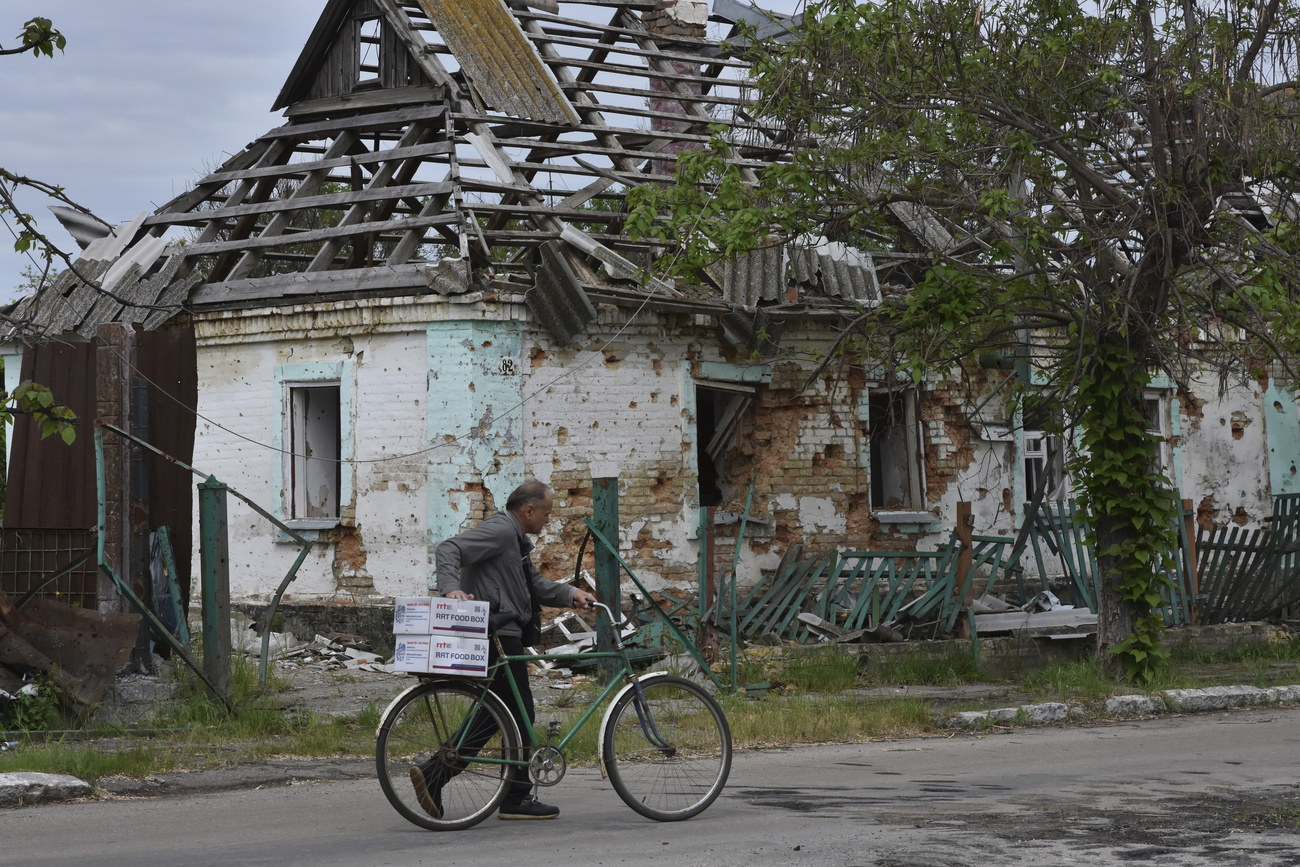
Ukraine: Swiss help with consequences of dam destruction

Switzerland is providing material aid and technical expertise to flood victims following the destruction of the Kakhovka dam in southern Ukraine.
The foreign ministry responded quickly to the partial destruction of the Kakhovka dam on June 6 and the resulting flooding, it confirmed in a reportExternal link in the SonntagsZeitung.
“The embassy in Kyiv is currently in the process of delivering urgently needed pipes and pumps to the water network operators above the dam,” said spokesperson Michael Steiner. This would allow the water supply systems to operate even at lower water levels, he said.
The embassy is also working with communities, local water network operators and NGOs on plans for the delivery of water treatment units and water tanks.

More
Kakhovka dam: Swiss warn of serious long-term consequences
The Swiss embassy is currently being supported by two water, sanitation and hygiene (WASH) specialists from the Swiss Humanitarian Aid Unit (SHA) who were already in the country.
Together with a Ukrainian WASH engineer, they will help find short- and medium-term solutions to mitigate the impact. Another SHA member was seconded to the United Nations and was involved in coordinating WASH measures with Ukrainian water network operators.
Threat of mines
Many partner organisations funded by the Swiss Agency for Development and Cooperation (SDC) have adapted their activities to provide emergency aid to people affected by the floods. For example, the Swiss partner organisation Partnership Fund for a Resilient Ukraine supported the local government of the city of Kherson in providing water tanks, generators and boats for rescue and demining operations.
Other NGOs funded by the SDC are also providing emergency aid to those affected by the floods. This involves hygiene kits, material for shelters, food and other relief supplies, the foreign ministry explained.
A precise assessment of the impact and needs on the ground will not be possible for several days. Access and aid delivery in the region is being hampered by displaced and washed-up mines, the ministry said.

More
Swiss lawmakers reject CHF5bn aid plan for Ukraine

In compliance with the JTI standards
More: SWI swissinfo.ch certified by the Journalism Trust Initiative






























You can find an overview of ongoing debates with our journalists here . Please join us!
If you want to start a conversation about a topic raised in this article or want to report factual errors, email us at english@swissinfo.ch.